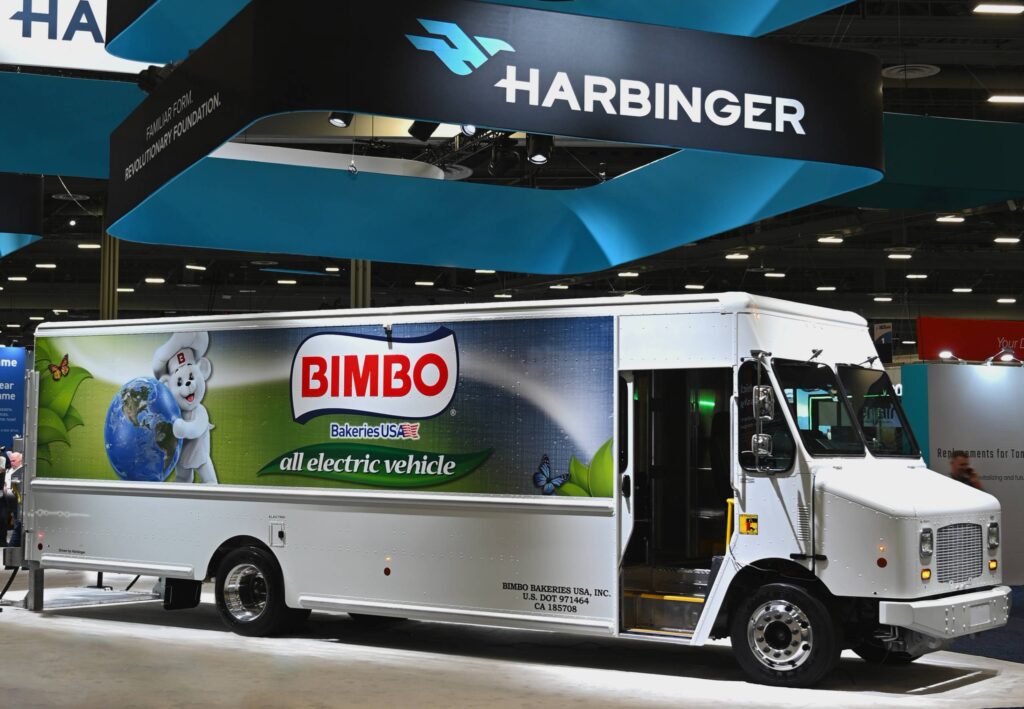Harbinger Bags 4,000 Pre-Orders Valued at Over $400 Million
Southern California electric truck producer, Harbinger, has secured 4,000 binding pre-orders totalling over $400 million. The announcement was made at the ACT Expo. The orders include multi-year commitments from major companies like Bimbo Bakeries USA, the U.S. arm of Grupo Bimbo, the world’s biggest baking firm, known for brands such as Sara Lee Bread and Entenmann’s.
The company also got orders from THOR Industries, the world’s largest RV manufacturer, renowned for brands like Airstream and Jayco. Commercial vehicle dealers, including Doggett Equipment Services Group, Campbell Supply, and GATR Truck Center, have also placed significant orders. Mail Management Services, a postal service operator, ordered 40 units.
$13 Million Additional Series A Funding for Harbinger in Q4 2023
In the Q4 2023, Harbinger raised an additional $13 million in Series A funding, bringing the total to $73 million. This funding round, which saw contributions from the Coca-Cola System Sustainability Fund managed by Greycroft, is one of the largest for a hardware company. The funds will be used to increase manufacturing capacity and kickstart commercial production by Q4 2024.
Unique Electric Platform Design by Harbinger
John Harris, Harbinger’s CEO, highlighted the company’s focus on the medium-duty vehicle segment. Harbinger’s design, unlike other manufacturers, ensures enhanced safety, durability, and cost-efficiency by building an electric platform from the ground up rather than retrofitting existing gasoline or diesel vehicles.
The Electric Vehicle Stripped Chassis
Harbinger’s management and technical team, including professionals from key companies like Tesla and Rivian, developed a proprietary electric platform. This electric vehicle stripped chassis includes all major vehicle systems, such as powertrain and high-voltage battery system.
Selling the Chassis
Harbinger assembles its electric vehicle stripped chassis and sells them to dealers, specialty upfitters, or large fleet customers. These third parties outfit these chassis with commercial or specialty bodies, a common practice among large gas and diesel vehicle manufacturers.
Applications of Harbinger’s Vehicles
The bulk of Harbinger’s 4,000-unit order, including those for Bimbo Bakeries USA, will become walk-in vans. The chassis will also be converted into class A motorhomes, emergency vehicles, and cutaway cabs. Harbinger is partnering with body partner Sevna to upfit the chassis into cutaway cabs.
Electric Truck Features
Harbinger’s electric trucks feature an 800V liquid-cooled battery system, a 20-year, 450,000-mile service life, segment-leading safety and driver assistance features, one-hour DC fast charging capability, and passenger vehicle-like handling and ride comfort.
Comprehensive Network Development
Harbinger is developing a comprehensive network of service providers, charging infrastructure partners, and premier dealers to support its medium-duty electric truck launch. This network currently covers 78% of the U.S. and Canadian population.
High Demand and Industry Impact
Scott Campbell, owner of Campbell Supply, noted the high demand for medium-duty vehicles and how electric vehicles are poised to significantly grow in the market. Christopher Wolfe, Senior Director of Sustainability at Bimbo Bakeries USA, added that partnering with Harbinger aligns with Grupo Bimbo’s commitment to achieving Net-Zero emissions by 2050.
Original Story at www.environmentenergyleader.com
